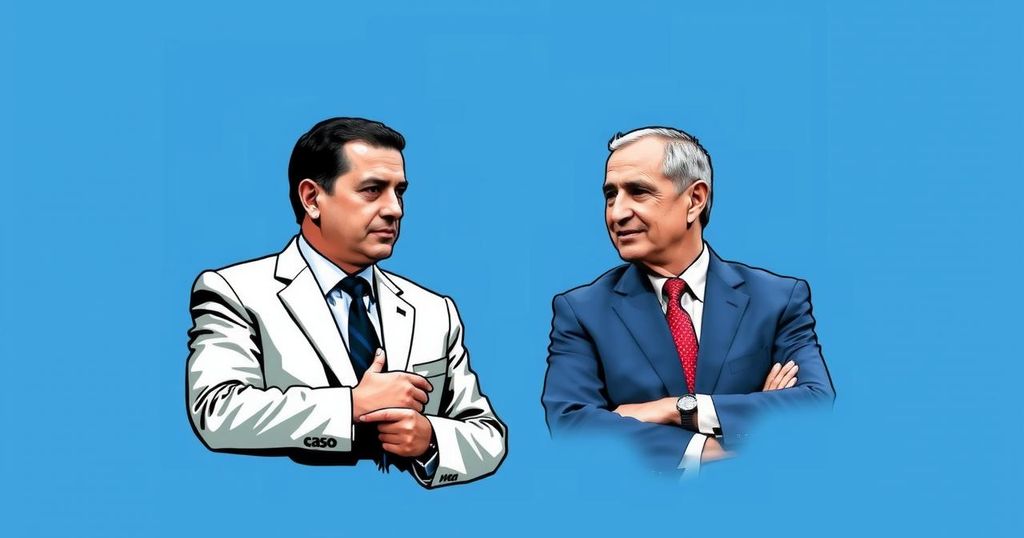Argentinian President Javier Milei has dismissed Foreign Minister Diana Mondino following the country’s vote supporting the U.N. resolution to lift the U.S. embargo on Cuba. Mondino was replaced by U.S. Ambassador Gerardo Werthein, with Milei’s office asserting the dismissal was connected to the controversial vote. The government emphasizes its opposition to the Cuban regime while promoting a foreign policy aligned with U.S. and Israeli interests. Mondino’s term was marked by several controversies, prompting the administration to initiate an audit of the Foreign Relations Ministry as it navigates foreign relations in a shifting geopolitical landscape.
Argentina’s President Javier Milei has dismissed Foreign Minister Diana Mondino, mere hours after the nation voted in favor of a United Nations resolution advocating for the end of the U.S. economic embargo on Cuba. This unexpected decision was confirmed by spokesperson Manuel Adorni on social media, who announced that Gerardo Werthein, Argentina’s ambassador to the United States, would be taking over the role of Foreign Minister. Although the official reasons for Mondino’s departure were not explicitly stated, it was indicated that the dismissal was connected to the controversial vote in the U.N. General Assembly. The President’s office clarified that Argentina stands firmly against the Cuban government, emphasizing its commitment to a foreign policy that denounces any regime violating human rights and individual freedoms. The U.N. resolution calling for the lifting of the U.S. embargo received support from 187 nations, with only the United States and Israel opposing the motion. Since assuming office in December 2023, President Milei’s administration has actively realigned Argentina’s foreign policy to synchronize more closely with U.S. and Israeli interests. Notably, he has shown strong support for Israeli Prime Minister Benjamin Netanyahu’s government in response to its military actions in Gaza—a stark contrast to many other Latin American countries which have taken a different stance. This internal conflict is exemplified by Bolivia and Colombia severing ties with Israel, while nations including Brazil have withdrawn ambassadors from Tel Aviv, highlighting a significant regional rift. Diana Mondino’s brief time as Foreign Minister encountered numerous controversies, such as the retraction of a press release that mistakenly referred to the disputed Falkland Islands by its British nomenclature instead of the Argentine term Malvinas. Additionally, she faced criticism for remarks made during a visit to China, where she suggested that “all Chinese look like the same,” further complicating the perception of stability within her office. Following Mondino’s dismissal, the Milei administration announced intentions to conduct an internal audit of the Foreign Relations Ministry to pinpoint those advocating for agendas that are in opposition to the government’s principles on freedom and human rights. As Argentina navigates this period of significant change, the consequences of these decisions for its foreign relations remain to be fully understood. President Milei’s government stands ready to redefine its international positioning within a rapidly changing geopolitical environment, potentially impacting relationships with both its traditional allies and adversaries.
The recent decision by President Javier Milei to dismiss Foreign Minister Diana Mondino is set against the backdrop of Argentina’s evolving foreign policy. Since taking office, Milei has seen a shift towards closer alignment with U.S. and Israeli interests, particularly in the region’s context, where many countries are distancing themselves from Israel. The vote at the U.N. regarding the U.S. embargo on Cuba represents a critical deviation from this direction, igniting controversy within his administration. Additionally, Mondino’s tenure has been fraught with errors that have created a perception of instability, which likely precipitated her dismissal. This circumstance is prompting an internal review of the Foreign Relations Ministry as the Milei administration seeks to assert control over its foreign policy narrative.
In summary, the dismissal of Foreign Minister Diana Mondino by President Javier Milei reflects a significant realignment of Argentina’s foreign policy posturing in relation to global allies and adversaries. The decision aligns with Milei’s broader goal of promoting a stance that unequivocally criticizes regimes violating human rights, while simultaneously challenging the previous administration’s diplomatic approaches. This change in leadership and subsequent internal audit signal a concerted effort by the Milei administration to shape Argentina’s international engagement in accordance with its ideological framework.
Original Source: www.newsweek.com






